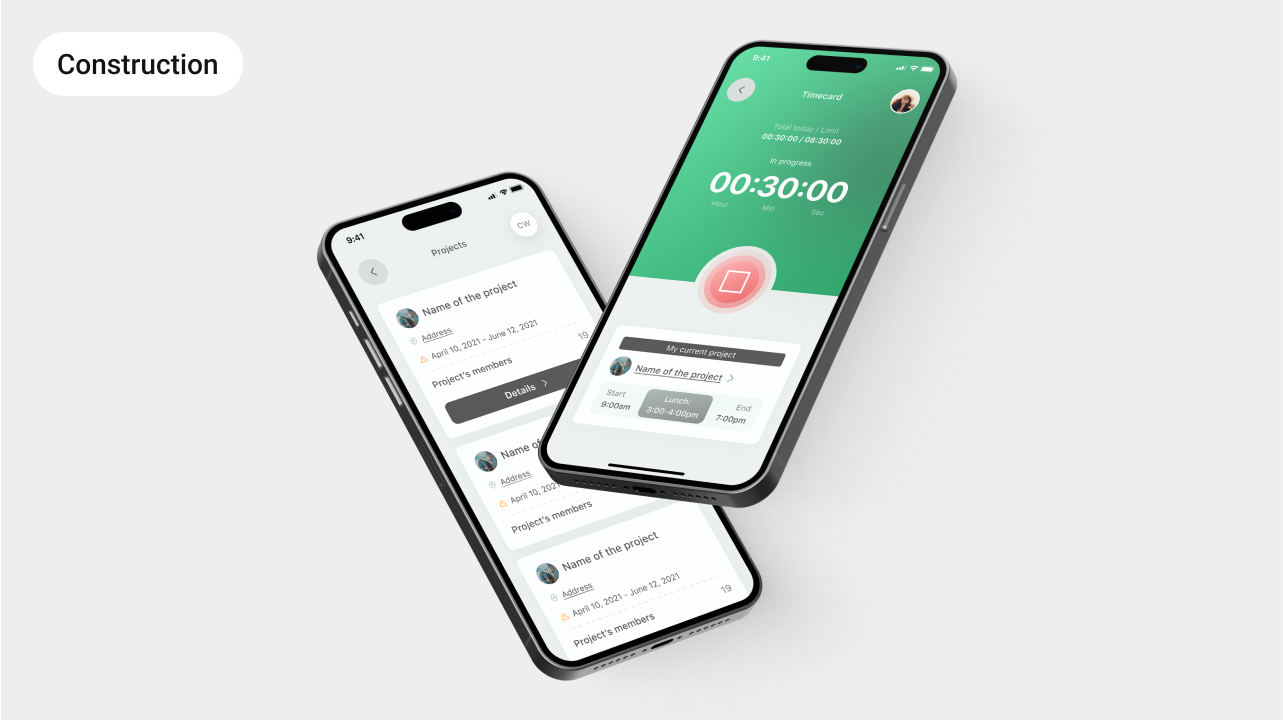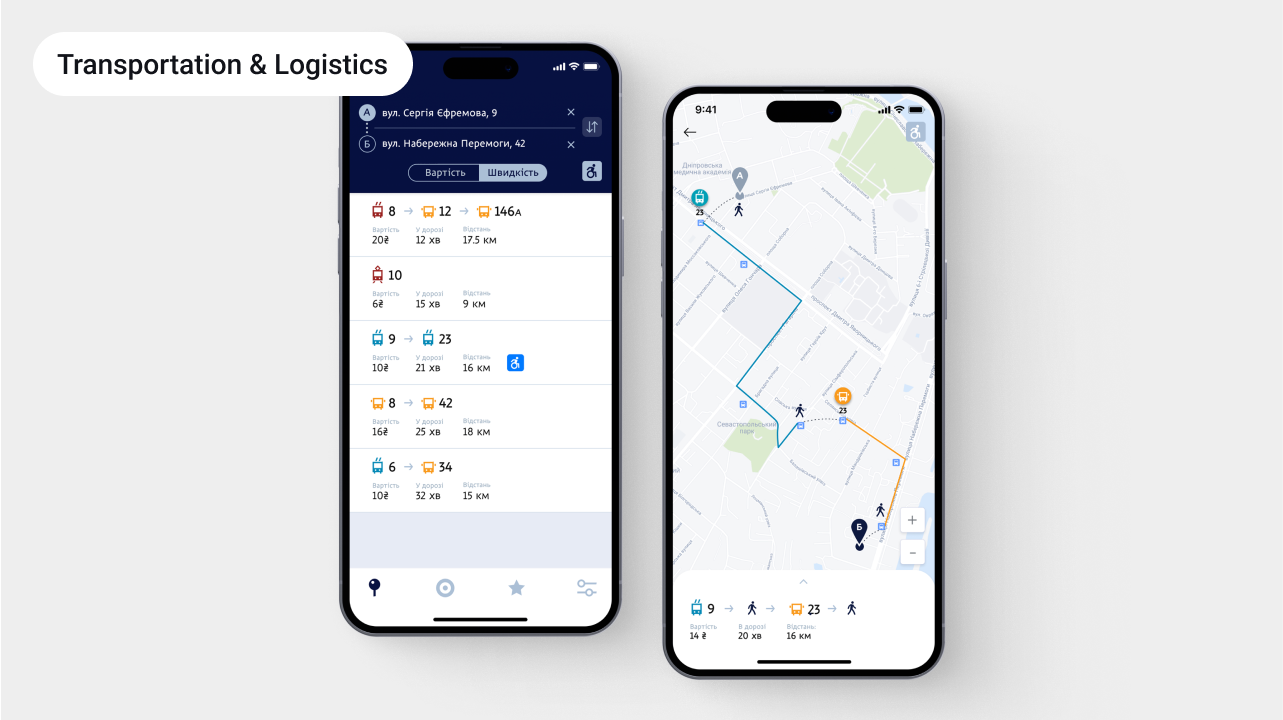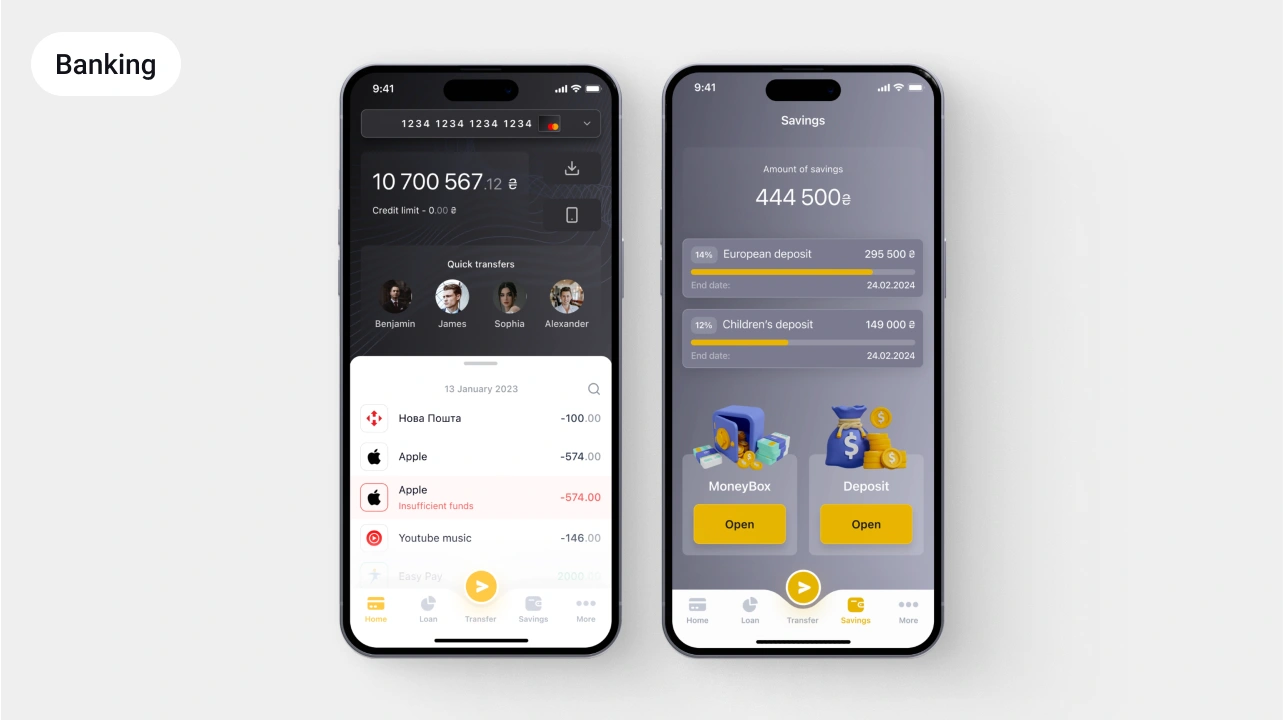Cross Platform Mobile App Development Service
If you’re working on a mobile app idea, this may turn out to be as difficult as it is rewarding. One of the potential aspects to look at from the very start is that while people are wary of changing their mobile use habits and platform preferences (some are iPhone people, some are Android fans), your app needs to cater to both while staying true to itself and your brand identity. These days, it’s all about catering to the laziest user out there: convenience is paramount.
But the good thing is that modern cross-platform mobile app development frameworks allow to create applications that will both have the native app look and feel without creating two codebases to look after in the years to come. This is where our expertise can come in handy; our main principles of cross-platform app development have been tried, tested, and approved of in multiple industries, from healthcare to education and beyond.
Learn more about how Lionwood can help your company ensure your app is developed in the format that will perfectly match your business requirements, and whether cross-platform app development is exactly the right answer for your project.

What is cross-platform mobile development?
Cross-platform mobile development is all about making apps that work on both iPhones and Android phones without extra hassle. Using tools such as React Native, Xamarin, and Flutter, developers write code once that deploys across multiple platforms. This smart approach not only streamlines development but also ensures consistency across different user experiences – no user is left out, whether they love Apple or are all about Android. This is a smart move because it saves time and money, so businesses can focus on making the app awesome for everyone.
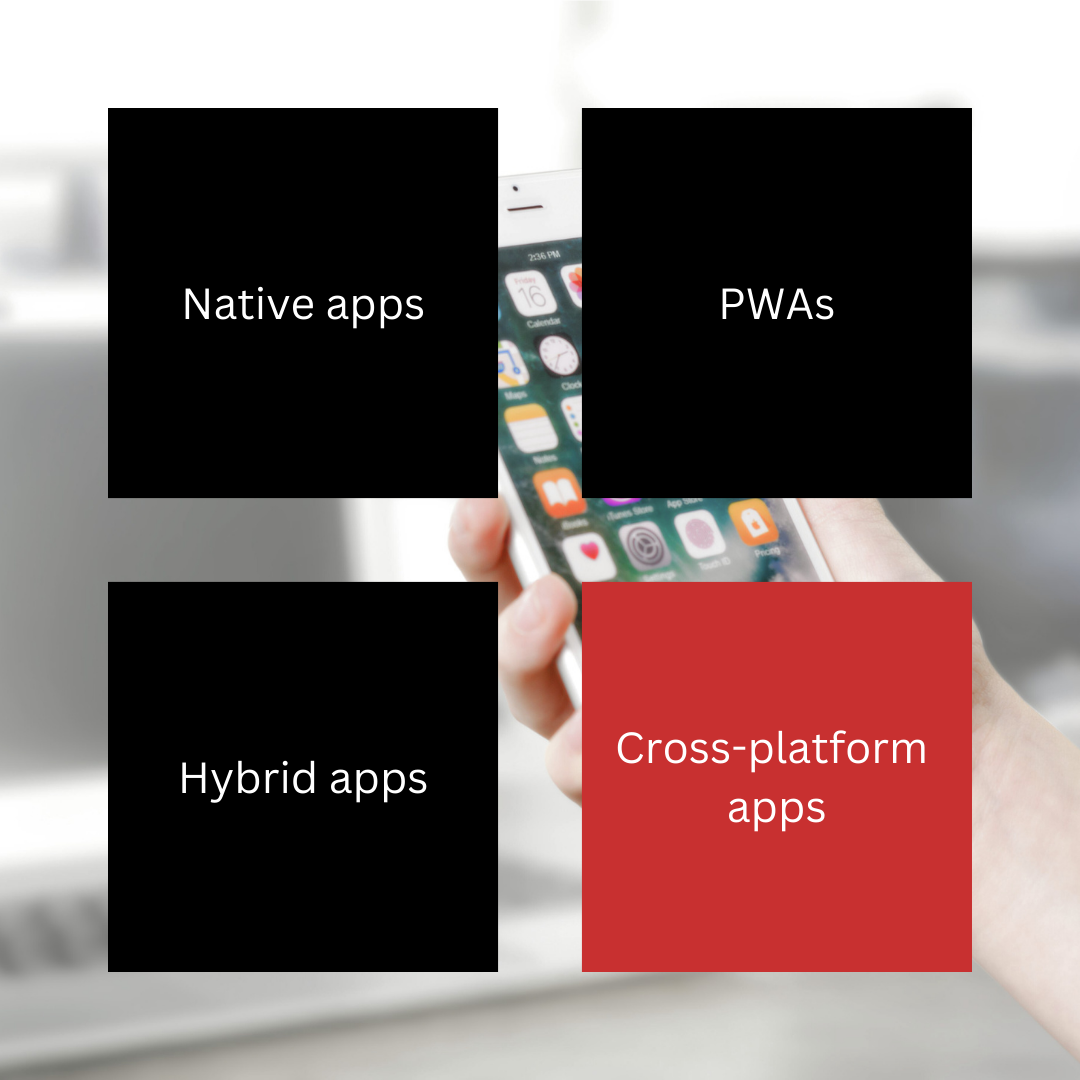
The four possible approaches
- Native: Native development focuses on crafting applications for specific operating systems using their respective programming languages and tools, such as Swift or Objective-C for iOS and Java or Kotlin for Android. This method offers unrivaled performance and a highly responsive user experience, as apps can fully leverage device capabilities and integrate seamlessly with the platform’s ecosystem.
- Progressive Web Apps (PWAs) are a hybrid of web and mobile experiences, providing app-like usability within a web browser using HTML5, CSS, and JavaScript. They work on any device with a browser and are designed to be fast, responsive, and capable of working offline thanks to service worker technology.
- Hybrid development combines web technologies (HTML, CSS, JavaScript) with native app functions, allowing for a single codebase to work on various platforms. It uses webview to display web interfaces in a native app shell, making it easier to tap into each device’s features. The key benefit is saving time and money since there’s no need to develop different versions for each operating system.
- Cross-platform app development lets developers write code once and run it on multiple operating systems like iOS and Android. It’s efficient because it avoids building separate apps for each platform. With tools like Flutter, Kotlin, or Xamarin, developers can create apps that feel pretty close to native ones to the user. The main benefits are saving time and money.
The cross-platform approach has worked for countless well-known apps, from Instagram and Slack to eBay, Pinterest, Toyota, and many others.
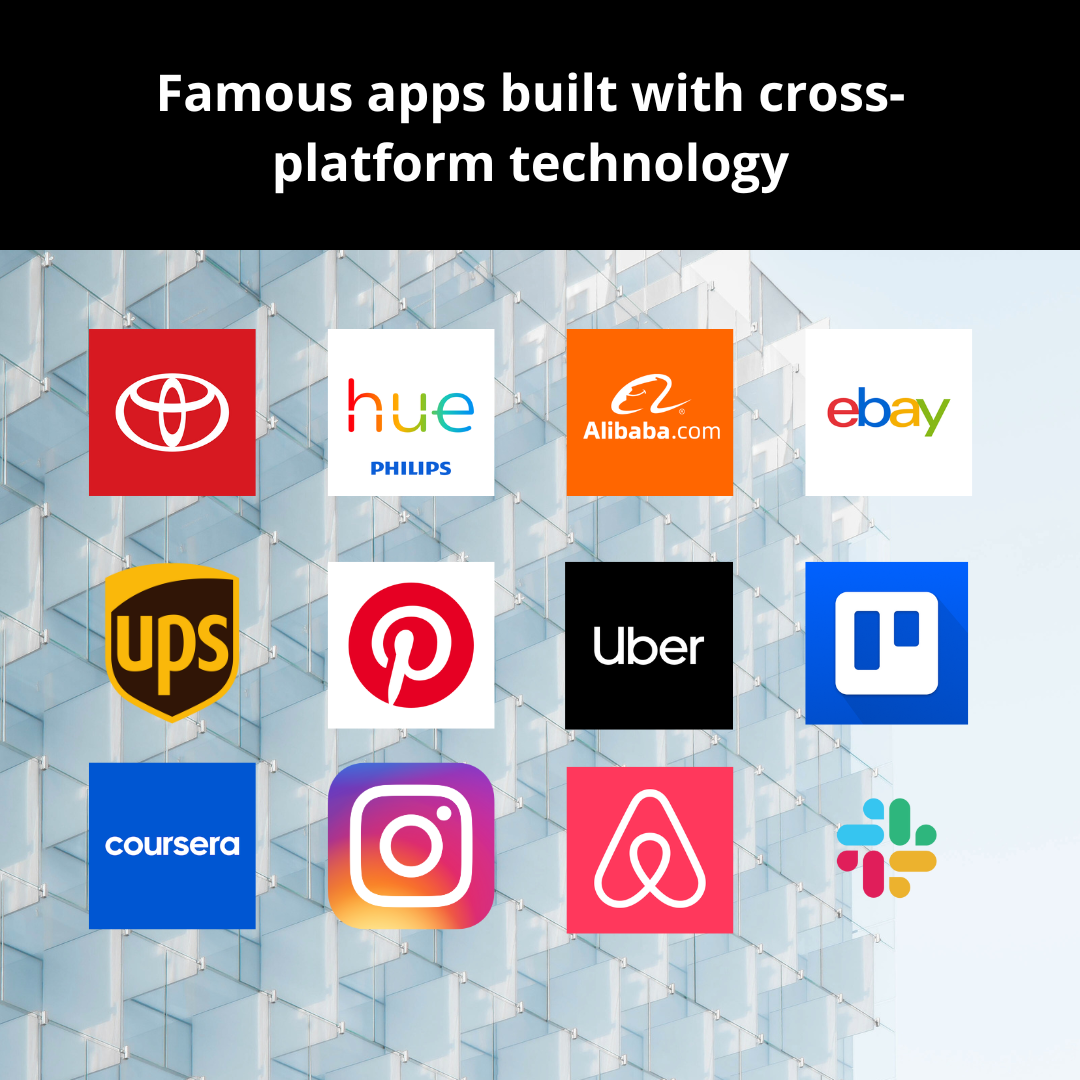
really what you need?
Benefits of cross-platform app development
-
Cost efficiency
One app that operates seamlessly across multiple platforms significantly reduces development and maintenance costs. Instead of hiring different teams for iOS, Android, and other platforms, you can invest in one team and one set of technologies.
-
Faster time to market
By working on a single codebase, mobile development teams can accelerate the production and deployment cycle of apps. This unified approach allows businesses to launch their products faster, enabling quicker user feedback and iteration.
-
Broader audience reach
With cross-platform apps, you can reach a wider audience across various devices and operating systems without extra effort or expense. This universal accessibility is crucial for apps aiming to gain a significant market share.
-
Easier maintenance and updates
Managing and updating the app becomes much simpler since changes are implemented once and reflected across all platforms. This consistency ensures that all users have the same experience, regardless of their device type.
-
Unity in design
Ensuring that your app provides the same look and feel on different devices enhances user experience and brand consistency. Cross-platform tools have matured, allowing developers to mirror native design elements more closely than ever before.
Where is the catch with cross-platform mobile app development?
-
Framework Mastery
Proficiency in cross-platform frameworks like React Native or Flutter is crucial. This expertise ensures developers can fully exploit the framework capabilities to deliver a consistent and seamless user experience across different devices.
-
Performance Optimization
Maintaining optimal performance on various devices is imperative. Expertise in fine-tuning the application can significantly enhance responsiveness, ensuring the app performs well against native applications.
-
Adaptation to Updates
Operating systems are frequently updated, which can affect app performance and functionality. Continuous monitoring and quick adaptation to these updates are necessary to maintain the app’s compatibility and performance.
-
Scalability Considerations
Understanding how to build scalable app architectures is important for accommodating growth in user base and data volume without performance losses. This allows the app to expand smoothly as demand increases.
CROSS-PLATFORM MOBILE DEVELOPMENT?
- When wider market reach is a priority: If your primary objective is to reach the broadest possible audience across multiple mobile platforms, cross-platform development is a good way to target both Android and iOS users with a single codebase. Not only is it cost-effective, but it also allows you to accelerate time-to-market for your product, especially if it’s intended for a broad user demographic.
- When the budget is limited: This one’s especially valuable for startups and smaller businesses that want to expand their mobile presence. Cross-platform development can be more economical because you don’t need to pay separate teams to develop and maintain separate apps for each platform.
- When the app represents a brand that should provide recognizable experience: Companies aiming for a uniform brand experience across a range of platforms and devices may find cross-platform development advantageous. It allows for the creation of a consistent look and feel that aligns with the brand message and values across various user touchpoints.
- When you need to launch fast: When the market entry timing is critical, developing a cross-platform app can expedite product launches. It enables simultaneous deployment on multiple platforms, providing a competitive edge in rapidly evolving markets where first-mover advantage is important.
- When you plan numerous updates in the future: Managing updates and bug fixes is easier with cross-platform apps since developers need to make changes to a single shared codebase. This significantly improves the efficiency of maintenance and deployment cycles.
- When it’s a MVP: For rapid prototyping or developing minimum viable products, cross-platform tools allow for quick iteration and testing of app concepts with a smaller investment. Businesses can validate ideas with real users across various platforms before committing to full-scale development.
Does cross-platform mobile application development cost less?
The curious thing about cross-platform mobile app development is that the initial “price tags” don’t really matter that much when it comes to comparing the actual costs with native apps. In other words, while you can find scenarios where native app development costs less than cross-platform, with each round of maintenance effort and updates, the “scores” will level out.
That being said, there are two major factors to consider:
- maintenance and updates are inevitable and obligatory in 99% of mobile applications
- cross-platform development can actually cost less from the very start, since it’s the primary choice for mobile apps that don’t require native functionalities (like gyroscopes), so that you shouldn’t pay for developer skills you don’t need
This means you only need one team versed in cross-platform tools, reducing the number of salaries and the amount of time spent on development. Additionally, when updates are required, a single change updates the app across all platforms, streamlining maintenance efforts.

TECHNOLOGIES

Kotlin

Flutter

iOS

Android

.NET Core

Xamarin

React
Our approach
Ensuring the UX is consistent
Our customers can be assured that the user experience their app provides will be as recognizable and consistent on both iOS and Android devices as possible. This helps maintain the integrity of your brand if your app is for the general public, or, if it’s an employee platform, make sure the training will cover all users equally.
Never charging for what’s not really needed
We don’t try to sell you what we don’t actually do while developing your app as a part of a “package deal”. The costs are calculated individually for each project on a granular level, ensuring every aspect of your app is implemented impeccably without having to blow the budget.
Leaving reasonable wiggle room
Mobile app market is an ocean that sees quite a lot of storms and treacherous waters, so you’ll likely want flexibility in what you can do with your app after it’s released. We embed the potential for change and revamps early on by following best practices, writing clear, maintainable code, and designing everything in such a way your app will not become hostage to its own initial concept.
Respecting industry specifics
With everything mobile applications can do now, it’s only logical they have diversified. We understand the specific factors of your industry, be it healthcare, education, or logistics, and take care to comply with not only regulatory constraints but overall best practices we’ve seen in the field.
Why choose us

-
The leading web development service company
-
89 successfully launched startups
-
4.9/5 Clutch ratingView on
-
75% of our talent are Middle and Senior specialists
-
Agile approach
-
Strong knowledge of English
-
Large talent pool
-
Progressive technologies
To find a perfect solution



